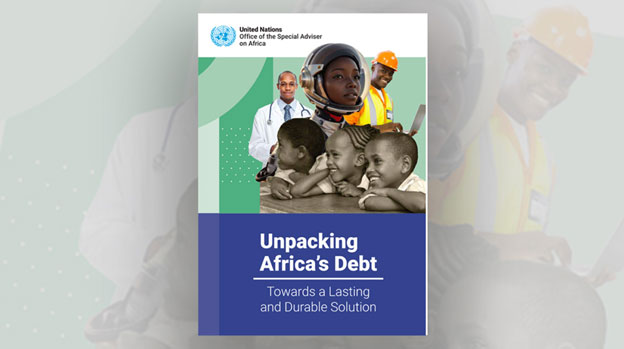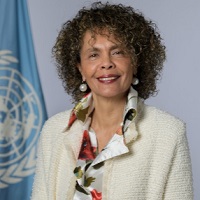
UNITED NATIONS, Jan 21 (IPS) – To achieve the Sustainable Development Goals (SDGs) and Agenda 2063 aspirations, Africa requires an additional $1.3 – 1.6 trillion in financing.
According to a new report ‘Unpacking Africa’s Debt: Towards a Lasting and Durable Solution’ by the UN Special Advisor on Africa launched on 14 November 2024, borrowing remains a necessary tool to navigate the compounding crises of financial distress, climate change, food insecurity, and persistent conflict.
The report emphasizes the need to re-examine Africa’s historical reliance on debt instruments to address structural constraints and unlocking economic opportunities. By fostering economic growth and ensuring debt sustainability, debt can become a tool for progress rather than a hindrance.

Debt is an important mode of financing. While many countries are in debt distress, we must not treat Africa as a completely debt-distressed continent. This shift requires aligning debt strategies with long-term development priorities.
“Debt is an important mode of financing. While many countries are in debt distress, we must not treat Africa as a completely debt-distressed continent,” said Cristina Duarte, Under-Secretary-General and Special Adviser on Africa to the UN Secretary-General, at the launch of the report in New York.
“Debt, when managed effectively, can help us invest in achieving development goals,” added Ms. Duarte. The need to reform the global financing system to ensure predictable and affordable financing, prioritize development outcomes over private finance interests, and create fiscal space to fund SDG investments, is also emphasized in the report.
Existing frameworks, including debt restructuring arrangements like the Common Framework, the Report says, are insufficient to meet Africa’s development needs. The Common Framework for Debt Treatments beyond the DSSI (Debt Service Suspension Initiative) is an initiative launched by the G20 in November 2020 to help low-income countries address unsustainable debt levels.
Developed by the G20 and the Paris Club (a group of major creditor countries), the Common Framework aims to streamline debt restructuring and provide more comprehensive debt relief options for countries struggling with high debt burdens, particularly following the economic impact of COVID-19.
At the national level, African countries can deepen domestic debt markets to incentivize local investment and effectively engage with the private sector.
Strengthening regional financing architecture can support transboundary infrastructure projects, complementing national efforts. Enhancing debt management and reform capacity across the continent will also play a critical role in addressing the development financing gap.
The report envisions debt as a means to support a more sustainable economic model. Moving beyond resource extraction for export, African economies can leverage debt to build value-added industries, fostering resilience and self-reliance.
By rethinking debt, fostering domestic investment, and pushing for global financing reforms, Africa can bridge its development gap and achieve its aspirations sustainably.
Key recommendations
Some of the recommendations proposed by the report aimed at addressing Africa’s financing challenges, include:
Increasing access to affordable finance:
Fulfill Official Development Assistance (ODA) pledges, allocating 10% to capacity building and digitization for domestic resource mobilization (DRM)systems.
Reform Multilateral Development Banks (MDBs) to prioritize long-term (30-50 years) concessional lending, increase capital, and lend in local currencies to reduce currency risks.
Prioritize sustainable development by ensuring predictable, large-scale climate adaptation financing.
Reducing borrowing costs:
Restructure high-interest, short-term debt into long-term, low-cost loans to ease fiscal pressure.
Strengthen the G20 Common Framework by expanded eligibility, clarifying processes, and ensuring debt service suspension during negotiations.
Enhancing debt sustainability:
Introduce debt service suspension linked to SDG progress.
Establish a Sovereign Debt Authority to prioritize development in debt treatment.
Leveraging Financing Innovations:
Use state-contingent clauses to suspend debt payments during crises.
Employ debt-for-development, debt-for-nature, debt-for-climate swaps to free resources for SDG investment.
Strengthening regional cooperation:
Boost regional development banks and accelerate Pan-African institutions like the African Investment Bank.
Promote cross-border financing for infrastructure and deepen regional financial markets.
Source: Africa Renewal, United Nations
IPS UN Bureau
Follow @IPSNewsUNBureau
Follow IPS News UN Bureau on Instagram
© Inter Press Service (2025) — All Rights ReservedOriginal source: Inter Press Service



